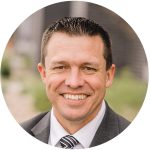There is a culture war being waged in our public schools.
But public schools have always been the site of culture wars. In the late 1800s, Horace Mann proposed the first “common” schools. These schools were intended to help factories find workers and were modeled after the Prussian schools at the time.
Shortly after their establishment, Protestants wanted to limit the possibility of Catholic Schools being public schools. There was even a push to amend the US Constitution to prohibit public funding of Catholic schools. That amendment failed, but many states have something similar in their constitutions called Blaine Amendments.
But the religious battles in public schools were not the end of the culture wars. Evolution, reading from the Bible, prayer in schools, dress codes, and, more recently, critical race theory and books in school libraries have all been battles over what should or should not happen in our public school system.
America is full of different cultures and beliefs that coexist every day. But that doesn’t exist in education. We should allow schools of different political, cultural, or religious points of view. Researchers call this pluralism. Having a variety of these types of schools would remove many of the battles in public schools.
Microschools are the way we can accomplish this. These are small schools that can specialize in a certain type of student, subject, or learning style.
We should allow religious schools for Evangelicals, Catholics, Protestants, Latter-day Saints, Jews, Muslims, and, yes, atheists.
We should allow schools from various cultures — schools that are focused on African American culture, Hispanic culture, Pacific Islander culture, and, yes, US culture.
We should allow schools that teach social-emotional learning and those that don’t. Schools that focus on Bible studies and those that don’t. Schools that ask for pronouns and those that don’t.
Ashley Berner, in her book Pluralism and America’s Public Education, said this,
If education inevitably involves basic questions of human nature, meaning, and destiny, then why should one view be privileged above another? Why should progressive and traditionalist educators compete for hegemony, or secular and religious perspectives not coexist and cooperate? In a liberal democracy such as ours, why should there not be room for many different pedagogical approaches and school structures?
To summarize her thoughts, let all of these schools exist. To add my own thoughts, let all of these schools exist in our neighborhoods.
The arguments about what is taught in schools comes from our desire to have our children learn the values that we hold as parents.
Are there subjects and styles that I think will be more successful? Yes. Do I want to give parents the means and power to choose whatever school they want? Absolutely. Should the government limit what type of schools are allowed or if they can be located in neighborhoods? Never.
Adam Peshek said it best: “You can respect a system that allows the options to flourish without supporting all the options themselves.”
I’m agnostic when it comes to what a child is taught. I am not agnostic when it comes to who decides. In order for parents to decide, we need to allow all of the choices to exist.

